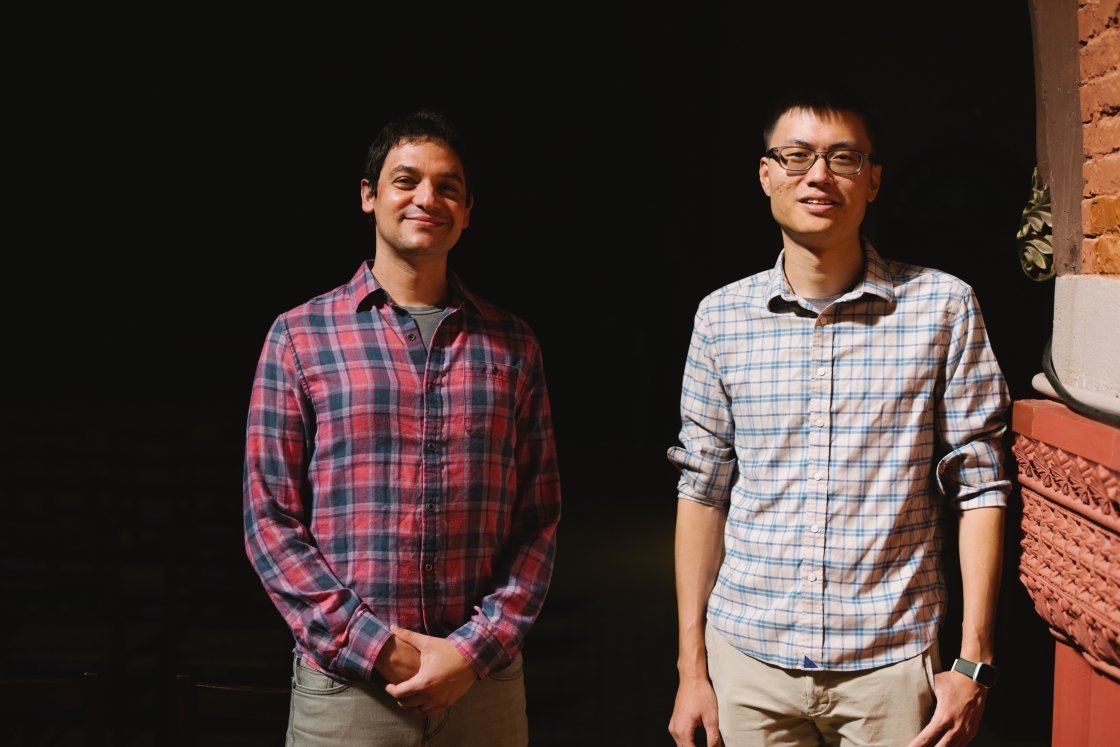HANOVER, N.H. – May 3, 2016 – Who is the creator – human or machine? Dartmouth College researchers will announce on May 18 the results of a year-long global competition for artificial intelligence algorithms that try to create “human-quality” fiction, poetry and dance music.
The goal of Dartmouth’s “Turing Tests in Creative Arts” is to show whether human judges – in the form of literary readers and party-goers on a dance floor – can distinguish which creations are generated by machines and which by humans.
In a prelude to the May 18 announcement at Dartmouth’s Digital Arts Exposition, contest organizers Dan Rockmore, a professor of mathematics and computer science, and Michael Casey, a professor of music and computer science, discuss the human-machine boundary in a commentary today titled “Looking for Art in Artificial Intelligence” in The Conversation.
“Algorithms help us to choose which films to watch, which music to stream, and which literature to read. But what if algorithms went beyond their jobs as mediators of human culture and started to create culture themselves?” Rockmore and Casey write. “Thinking about art forms leads naturally to another question: Who is the artist? Is the person who writes the computer code that creates sonnets a poet? Is the programmer of an algorithm to generate short stories a writer? Is the coder of a music-mixing machine a DJ? Where is the divide between the artist and the computational assistant and how does the drawing of this line affect the classification of the output? We’re looking forward to seeing what our programming artists submit. Regardless of their performance on ”the test,“ their body of work will continue to expand the horizon of creativity and machine-human co-evolution.”
Dartmouth’s Turing Tests include three competitions -- DigiLit, PoetiX, AlgoRhythms -- for algorithms that create short stories, sonnets and DJ dance music sets. The contest opened for submissions last summer. The short stories can be no longer than 4,000 words, the sonnets must be 14 lines and the dance sets are 15 minutes of either original music or a selection from existing music.
The Turing test, named for the British pioneering computer scientist and mathematician Alan Turing, tests a machine’s ability to exhibit intelligent behavior that is indistinguishable from that of a human.
“The classic Turing test has always been held out as the benchmark of human intelligence -- that is, writing an algorithm that enables a computer to carry on a conversation that fools the human on the other side,” Rockmore says. “But even with a test like that, people always say a computer can’t write a novel or a poem. In our competitions, we hope to inspire artificial intelligence researchers to take on that challenge and create another dimension of AI -- creative intelligence.”
More information is available at https://math.dartmouth.edu/~turingtests/
Available to comment are Professor Dan Rockmore at daniel.n.rockmore@dartmouth.edu and Professor Michael Casey at michael.a.casey@dartmouth.edu.

